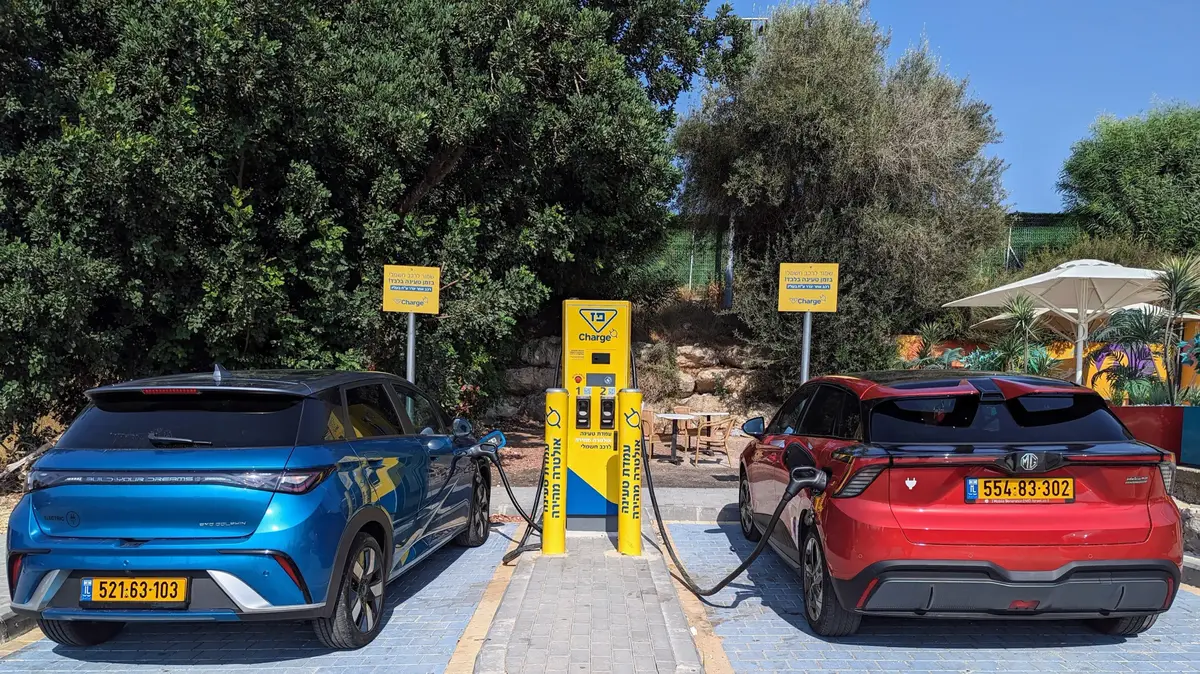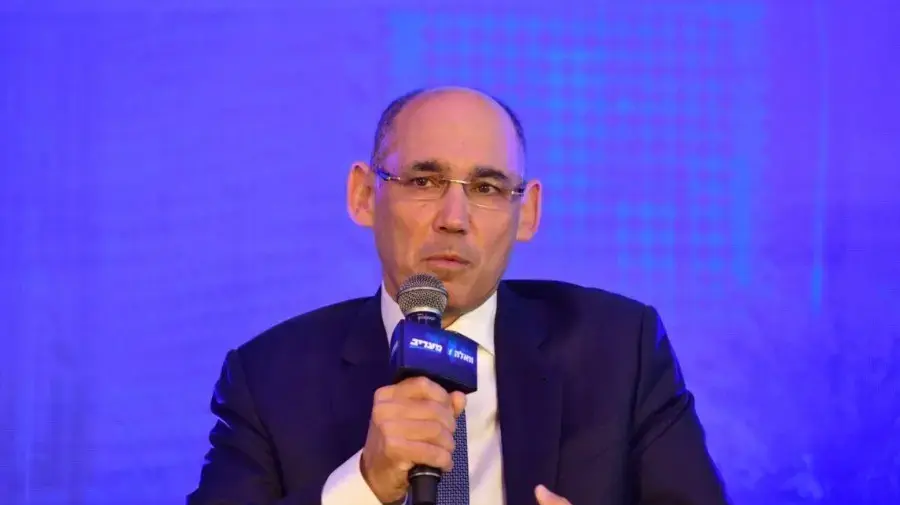In the middle of the year, in June, a record was set in car deliveries. 31,722 cars were delivered that month, and 183,800 cars in the first six months of the year. This is a relatively high rate compared to the corresponding period in previous years.
As can be seen on the roads, Tesla captured its presence in a short time. But Geely Geometric C, imported by Union Motors, a Toyota importer, is currently making its breakthrough at an even more impressive pace - with more than 1,000 sales in its first two weeks of marketing. Gillie expects to end the year, or next month, with 6,000 dedications, and along with the rest of the electric cars this year - at least 10,000 electric cars are expected to hit the road, in addition to the hybrid cars - rechargeable and non-electric, which account for 20.3% of new cars sold.
This electrical revolution is happening faster than expected, and it is already giving its signals in declining fuel consumption.
Now it is not particularly significant, but one does not have to be a great economist to understand the trend.
Drivers define this trend as savings that will be felt in the pocket, those with environmental awareness define it as savings in air pollution, and those with health awareness in general should see it as savings in human suffering and human life.
But if you are a finance minister, for example, the definition is quite different: loss of state revenue.
And when we talk about state revenues from car owners in the country, we are talking about NIS 40 billion, half of which is fuel taxes - excise and VAT. These make up 62% of the price of gas at stations, which is NIS 4.04 out of NIS 6.62 per liter of 95-octane gasoline.
Without wasting unnecessary time
So it is true that only recently did Prime Minister Naftali Bennett attend the climate conference in Glasgow, which he attended with a delegation of 140 people - the second largest among the world delegations there. It is true that he pledged in his speech there about zero emissions by 2050, and it is true that the accelerated penetration of electric cars serves this purpose, but it could weigh heavily on state revenues.
Finance is therefore not wasting unnecessary time, and staff in the ministry are already exploring an alternative way of taxing for green drivers. The leading proposal is taxation by mileage, ie by miles. In fact, the high tax on fuel was a kind of traveling tax, but as mentioned, the reduction in fuel consumption now leads the Treasury to think of an alternative that is not related to fuel.
As mentioned, the Treasury is already concerned about the decline in tax revenue from car owners. Import taxes on vehicles are also declining. In 2020, taxes on car imports accounted for 3.4% of total tax collection (imports only), compared with 4.6% of total taxes collected a decade ago, and a similar rate was recorded two decades ago.
The decline is due to the entry of hybrid vehicles, which gained rapid momentum and reached more than 25% of the new cars sold in recent years. The tax on these cars is set at only 10%, compared to 100% and more on traditional cars. Next year this tax was supposed to go up, but it will probably be postponed for a year, so state revenues from car imports are not expected to go up anytime soon.
The Treasury argues that this tax does not cover the real cost to the economy as a result of the damage to car use, the so-called "external costs". These costs include loss of productivity due to traffic jams, cost of accidents, air pollution damage, cost of infrastructure wear, noise damage and more.
The cost of the damages is estimated by the Treasury at 7% -6% of GDP - about NIS 85-73 billion. This is in contrast to the state's revenues from car owners, which can be estimated at NIS 50 billion - fuel, purchase taxes and VAT on cars, spare parts and accessories, fees and levies, value in use, etc. It is clear that switching to hybrid and electric vehicles reduces this cost, and this should be offset by tax costs.
Transportation in Israel is the source of one-fifth (20%) of pollutant emissions. Oxygen - the biggest problem the prime minister has promised to tackle with determination. The calculation indicates that reducing transport emissions by 20% will lead to a 12% reduction in greenhouse gases.
As mentioned, the Treasury's calculations on car damage refer to traditional cars, and in their name they plan to impose alternative taxes on the green future.
If we succeed in moving to green cars at the current rate, the economy map will change dramatically: apartment prices on major arteries will skyrocket - as today the risk of mortality for major axis tenants as a result of air pollution is almost 15% higher than for non-major street tenants.
This is without adding the reduction in value today as a result of the noise nuisance.
One-way principle
This government strives to be seen as supportive of health and high environmental awareness, as evidenced by the delegation to Glasgow. This conceptual advance can be seen in the imposition of an unprecedented tax on disposable plastic utensils: the amount of the levy and the tax method imposed by weight alone.
The issue has been discussed for the past two weeks in the Knesset Finance Committee, which is only beginning to understand the complexity of the matter and is far from approving it in retrospect. Manufacturers of paper cups, which contain 5% plastic, received for the heavy tax payment, the same as the tax on a cup on the purity of the plastic.
Even in the tax on sugary drinks the government laid an iron fist, and unlike other countries it was not preceded by a public debate. Not even a debate in the Knesset or even in the government. Moreover, in the name of our health, it has also been sweepingly imposed on manufacturers who have made an effort to reduce the amount of sugar in beverages, in accordance with the recently established labeling regulations. Even sugar substitutes - both natural and artificial - were included under this iron guideline, which, like the levy on disposable dishes, was signed as an order of the Minister of Finance.
So suppose the landlord did go crazy, and everything related to health and the environment is in his mind.
So let's say that, as the Minister of Finance said - leave money, leave expected revenues of 1.2 billion shekels, that's in our minds.
But why not make similar sense when it comes to switching to green cars?
Were we wrong?
Fixed!
If you find an error in the article, we will be happy for you to share with us and we will correct it








